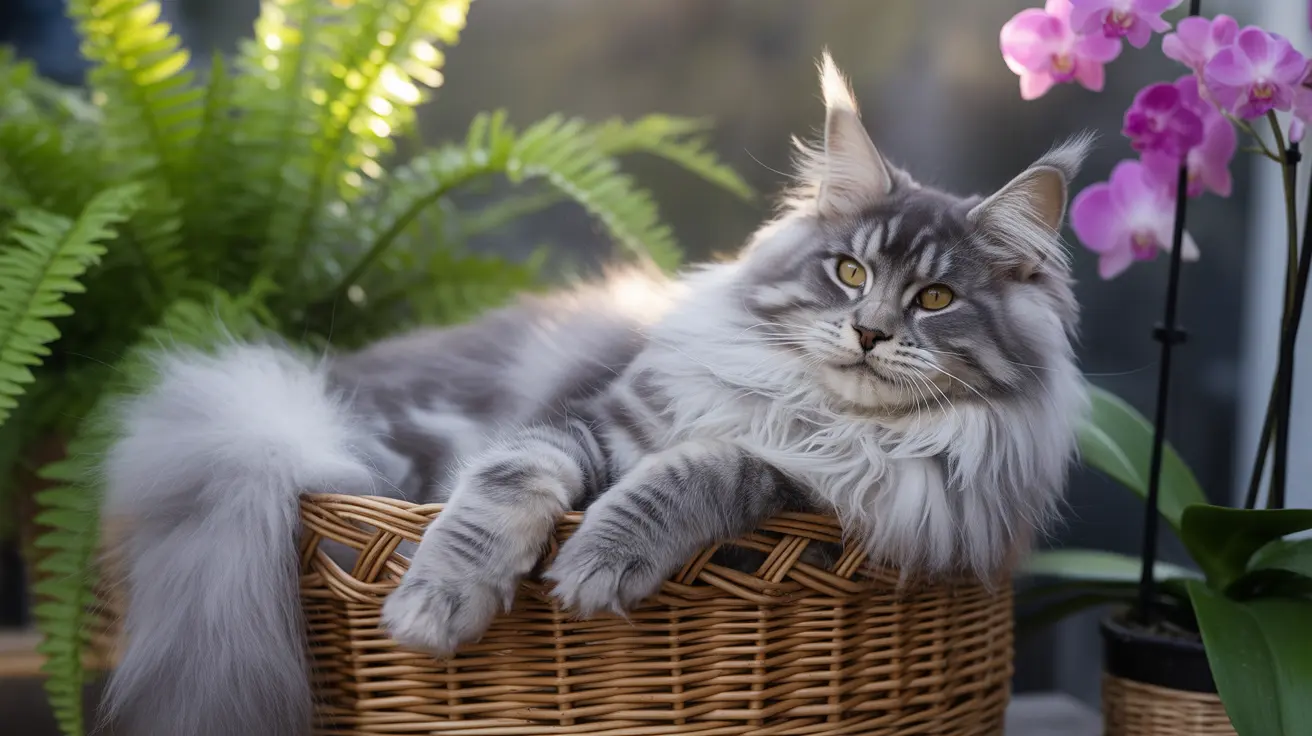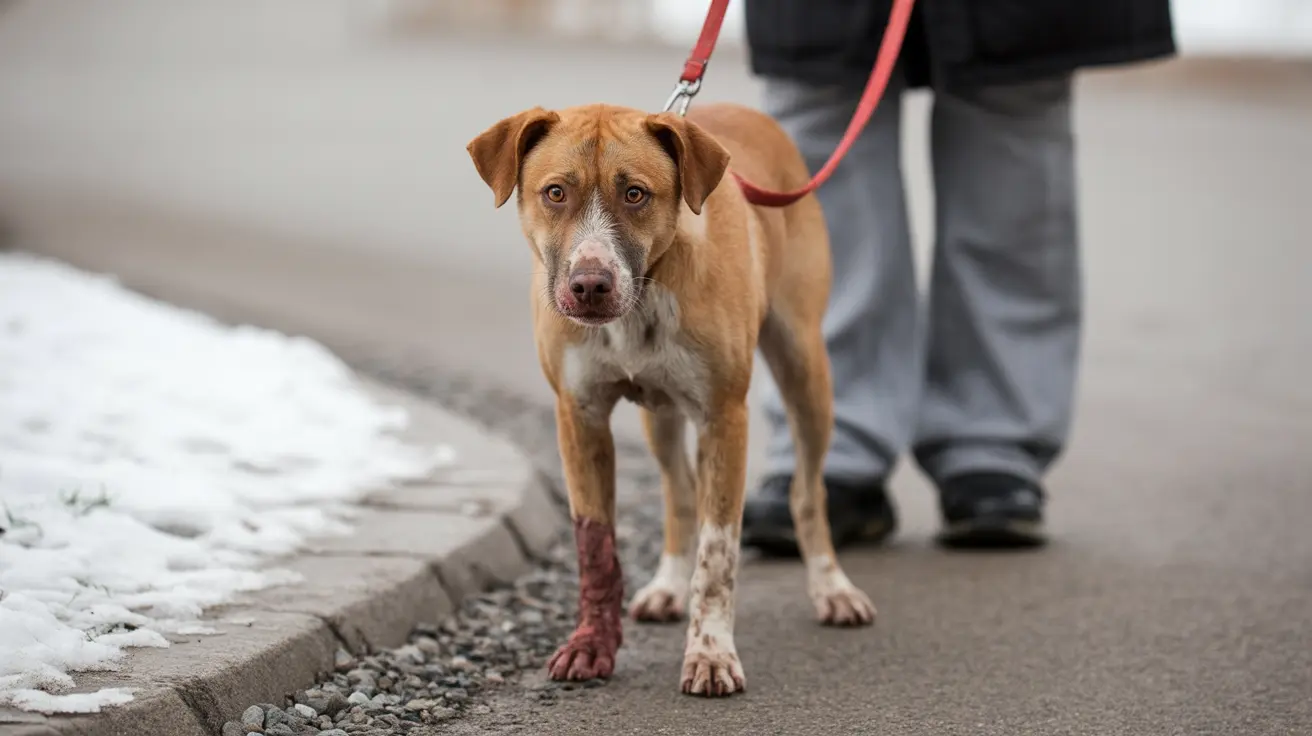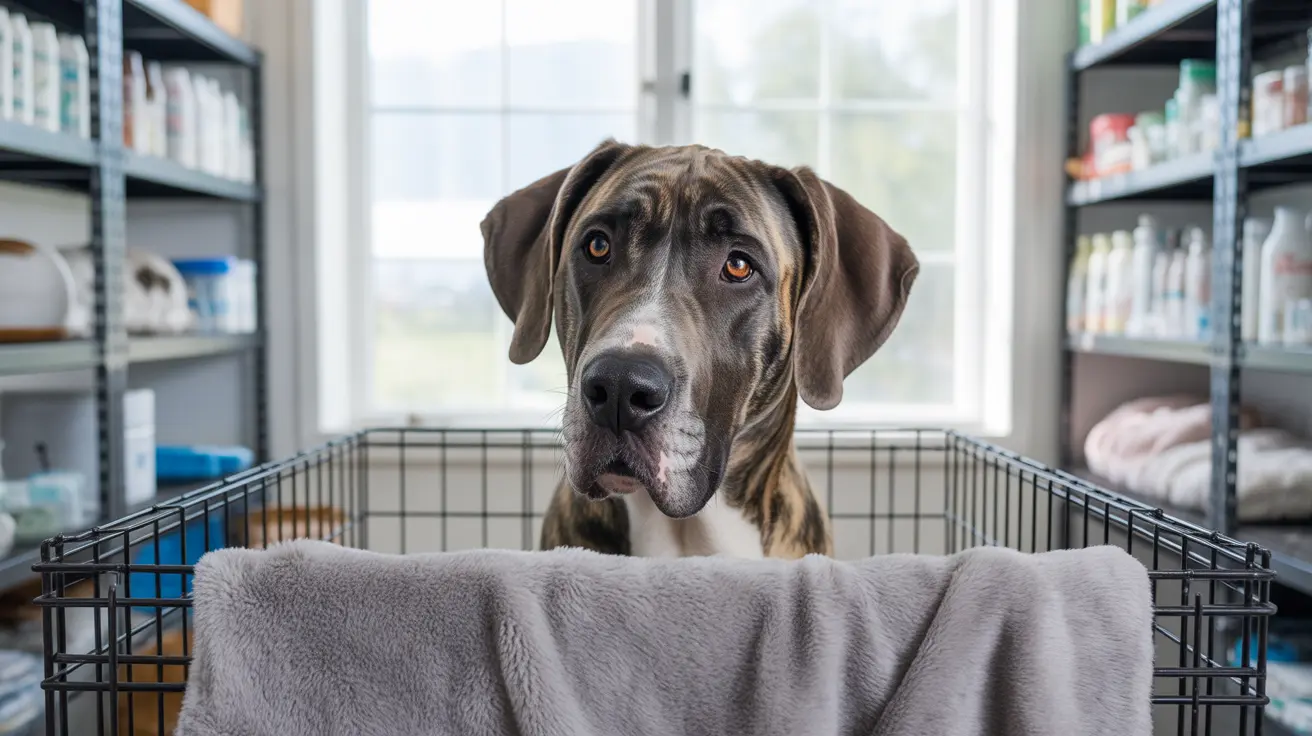Reiki for Cats' Health: A Gentle Approach to Feline Wellness Through Energy Healing
As more cat owners seek holistic approaches to support their feline companions' well-being, Reiki for cats' health has emerged as a gentle, non-invasive complementary therapy. This ancient Japanese healing practice, which translates to "spiritual energy," offers a unique way to promote relaxation, reduce stress, and support overall wellness in cats through the power of universal life force energy.
Unlike traditional hands-on treatments, Reiki respects cats' natural boundaries and preferences, allowing them to participate in their own healing journey. Whether your cat is dealing with chronic illness, recovering from surgery, or experiencing emotional challenges, Reiki can serve as a valuable addition to conventional veterinary care, creating a peaceful space where natural healing processes can flourish.
Understanding Reiki: The Foundation of Energy Healing for Cats
Reiki originated in Japan in the early 1900s and is based on the principle that a universal life force energy flows through all living beings. The word itself combines two Japanese concepts: 'Rei' meaning spirit and 'Ki' meaning energy. This spiritual energy healing practice involves gentle hand placement, meditation, and the creation of a calm environment to promote mental, physical, and spiritual healing.
For cats, Reiki represents a non-invasive approach that honors their sensitive nature and natural instincts. The practice utilizes various meditation tools including symbols, mantras, breathing techniques, and visualization to create a tranquil atmosphere where cats can choose to receive healing energy at their own comfort level.
How Reiki Interacts with Feline Physiology and Energy Fields
Scientific studies suggest that Reiki activates the parasympathetic nervous system, which is responsible for promoting relaxation and healing responses in the body. In cats, this activation can trigger the body's natural self-healing processes, supporting immune function and reducing stress-related symptoms that may exacerbate existing health conditions.
Cats are particularly sensitive to energy fields and human emotions, making them naturally responsive to Reiki's gentle approach. Unlike some animals that may initially avoid energy work, cats often learn to seek out Reiki sessions as a means to recharge their energy and find comfort. This unique feline characteristic makes Reiki especially effective for supporting their overall well-being.
The Let Animals Lead® Method for Cats
The most effective approach for Reiki with cats is the Let Animals Lead® (LAL) method, which emphasizes meditation-based healing rather than forced touch or energy transmission. This approach is particularly important for cats, who value their autonomy and may become stressed when forced into uncomfortable situations.
The LAL method allows cats full control over their participation, opposing techniques that impose energy through direct contact. Instead, practitioners cultivate a calm, inviting space within themselves, permitting cats to choose whether to join the healing session and to what degree they wish to participate.
Health Benefits of Reiki for Cats
Reiki for cats' health offers numerous benefits that can enhance both physical and emotional well-being. The practice is particularly effective for stress relief, which is often the primary concern for many feline health issues. The calming environment created during Reiki sessions invites cats to relax, which can be especially beneficial for anxious or traumatized animals.
Physical Health Support
Reiki can help alleviate symptoms associated with chronic illnesses commonly affecting cats, including diabetes and arthritis. The relaxation response induced by Reiki sessions supports immune function and may contribute to faster healing times after surgery or injury. Many cat owners report improvements in their pets' mobility and overall comfort levels following regular Reiki treatments.
For cats dealing with pain management, Reiki provides a gentle alternative that complements traditional veterinary treatments. The practice stimulates the body's natural healing processes without the need for additional medications or invasive procedures.
Emotional and Behavioral Benefits
Cats experiencing emotional challenges such as fear, aggression, or anxiety often respond positively to Reiki therapy. The practice can help reduce emotional blockages and promote a sense of peace and security. This is particularly valuable for rescued cats with past trauma or cats adjusting to environmental changes such as moving to a new home or the introduction of new family members.
The strengthening of the human-animal bond is another significant benefit of Reiki for cats' health. The practice provides a unique way for owners to connect with their pets on a deeper level, fostering trust and understanding that can improve overall quality of life for both cat and owner.
Specific Conditions That Respond Well to Reiki
Reiki therapy can be beneficial for cats in various situations and health conditions. During pregnancy complications, Reiki can provide comfort and support for expectant mother cats, helping to reduce stress that might affect the developing kittens. Post-trauma recovery is another area where Reiki shows promise, offering gentle support for cats recovering from accidents, surgeries, or emotional trauma.
Environmental stressors that commonly affect cats, such as moving homes, new pets, or changes in household routines, can be mitigated through regular Reiki sessions. The practice helps cats adapt to changes while maintaining their emotional balance and overall well-being.
End-of-Life Care
In end-of-life situations, Reiki promotes peacefulness and helps cats cope with the dying process with greater comfort. The practice offers pet owners reassurance by fostering tranquility in their pets' final days, creating a serene environment where natural transitions can occur with dignity and peace.
Learning Reiki for Your Cat: A Step-by-Step Approach
Cat owners interested in learning Reiki for their pets can begin by understanding the fundamental principles of creating a peaceful healing space. The practice starts with cultivating a calm, meditative state within yourself, as cats are highly sensitive to human emotions and energy.
Preparing for a Home Reiki Session
Creating an appropriate environment is essential for successful Reiki sessions with cats. Choose a quiet, comfortable space where your cat already feels secure. Ensure the room is free from distractions such as loud noises, other pets, or sudden interruptions. The temperature should be comfortable, and soft lighting can help create a calming atmosphere.
Before beginning, spend a few minutes centering yourself through deep breathing and meditation. Your calm energy will set the tone for the entire session and help your cat feel more receptive to the healing process.
The Session Process
Begin each session by simply sitting quietly in the designated space and allowing your cat to approach voluntarily. There's no need to force interaction or touch—the Reiki energy works effectively even from a distance. If your cat chooses to come close or make physical contact, you can gently place your hands near or lightly on their body, particularly around chakra points such as the head, heart, or back.
Sessions typically last between 15 to 30 minutes, though cats may choose to participate for shorter or longer periods. Pay attention to your cat's body language and respect their signals if they wish to leave or take breaks during the session.
Integrating Reiki with Veterinary Care
Reiki should always be used as a complementary therapy alongside conventional veterinary treatments, never as a standalone cure. The practice works best when integrated into a comprehensive health care plan that includes proper nutrition, regular veterinary check-ups, and any prescribed medications or treatments.
Many experienced Reiki practitioners collaborate with veterinarians and other animal health professionals to provide holistic care. This integrative approach ensures that cats receive the full spectrum of care needed for optimal health and well-being.
Communicating with Your Veterinarian
When incorporating Reiki into your cat's health care routine, it's important to maintain open communication with your veterinarian. Share information about the Reiki sessions, including any observed changes in your cat's behavior, appetite, energy levels, or symptoms. This information can help your veterinary team make informed decisions about your cat's overall treatment plan.
The Owner-Pet Connection in Reiki Healing
An interesting aspect of Reiki for cats' health involves the recognition that emotional factors affecting a cat's well-being sometimes relate to their owner's emotional state. The shared environment and deep bond between cats and their owners means that stress, anxiety, or emotional imbalances in humans can impact their feline companions.
For this reason, some Reiki treatments may include sessions for the cat owner as well, helping to harmonize the energy within the shared living space. This holistic approach acknowledges the interconnected nature of the human-animal bond and its influence on overall health outcomes.
Signs Your Cat Is Responding to Reiki
Recognizing positive responses to Reiki treatment can help you gauge the effectiveness of the sessions for your cat. Common signs of beneficial response include increased relaxation, deeper and more peaceful sleep, improved appetite, and greater social interaction with family members.
Some cats may show immediate responses during sessions, such as purring, kneading, or positioning themselves closer to the practitioner. Others may demonstrate cumulative benefits over time, with gradual improvements in mobility, reduced anxiety behaviors, or better adaptation to environmental changes.
It's important to note that cats may also experience temporary adjustment periods following Reiki sessions, which can include changes in sleep patterns, appetite, or behavior. These adjustments typically resolve within 24-48 hours and often indicate that the healing process is taking effect.
Virtual and Distance Reiki for Cats
One of the remarkable aspects of Reiki for cats' health is its effectiveness even when performed at a distance. Virtual Reiki sessions can be particularly beneficial for fearful or anxious cats who may be stressed by the presence of unfamiliar people in their home environment.
Distance healing respects animal agency and is suitable for cats with various temperaments and backgrounds. The universal nature of life force energy means that physical proximity is not required for effective treatment, making Reiki accessible to cats regardless of their location or comfort level with strangers.
Training and Continuing Education for Cat Owners
Experienced practitioners emphasize the importance of education and training for cat owners who wish to provide Reiki care at home. Proper training ensures that owners understand the principles of energy healing, appropriate techniques for working with cats, and how to recognize their pets' responses to treatment.
Many Reiki masters offer specialized courses in animal Reiki that cover the unique aspects of working with different species, including cats' specific needs and preferences. This education helps owners develop confidence in their practice while ensuring the safety and comfort of their feline companions.
Frequently Asked Questions
Is Reiki safe for all cats, including kittens and senior cats?
Yes, Reiki is safe and appropriate for cats of all ages, from kittens to senior cats. The gentle, non-invasive nature of the practice makes it suitable even for cats with serious health conditions. However, it should always complement, not replace, appropriate veterinary care.
How long does it take to see results from Reiki treatment in cats?
Response times vary among individual cats. Some may show immediate signs of relaxation and calm during their first session, while others may demonstrate gradual improvements over several sessions. Generally, cats who are open to the energy tend to respond more quickly than those who are initially resistant or fearful.
Can I perform Reiki on my cat if I'm not trained as a practitioner?
While professional training is recommended for the most effective results, cat owners can learn basic Reiki principles and techniques. The key is approaching the practice with respect for your cat's boundaries, maintaining a calm and meditative state, and allowing your cat to lead the session according to their comfort level.
Will my cat resist Reiki treatment?
Cats may initially be cautious about new experiences, including Reiki. However, many cats learn to seek out Reiki sessions as they begin to associate them with relaxation and comfort. The Let Animals Lead® method ensures that cats are never forced to participate, which helps build trust over time.
How often should my cat receive Reiki treatments?
The frequency of Reiki sessions depends on your cat's individual needs and health conditions. Some cats benefit from daily brief sessions, while others may only need weekly treatments. Chronic conditions may require more frequent sessions initially, with the frequency adjusted as improvements are observed.
Can Reiki help with my cat's behavioral problems?
Reiki can be beneficial for behavioral issues that stem from stress, anxiety, or emotional trauma. The practice helps cats find emotional balance and can reduce aggressive behaviors, excessive hiding, or other stress-related problems. However, behavioral issues should also be addressed through appropriate environmental modifications and, when necessary, consultation with veterinary behaviorists.
Does Reiki interfere with my cat's medications?
Reiki does not interfere with medications or other veterinary treatments. In fact, it often enhances the effectiveness of conventional treatments by promoting relaxation and supporting the body's natural healing processes. Always maintain open communication with your veterinarian about all complementary therapies your cat receives.
Conclusion
Reiki for cats' health offers a gentle, respectful approach to supporting feline well-being through the power of universal life force energy. This ancient practice honors cats' natural sensitivity and autonomy while providing a non-invasive method to promote relaxation, reduce stress, and support overall health. Whether used to address specific health conditions, emotional challenges, or simply to enhance the quality of life, Reiki creates a peaceful space where cats can access their innate healing abilities.
The key to successful Reiki practice with cats lies in respecting their preferences, maintaining appropriate boundaries, and allowing them to lead their own healing journey. When integrated thoughtfully with conventional veterinary care, Reiki can become a valuable component of a comprehensive wellness approach that supports not only physical health but also the deep emotional bond between cats and their human companions.






